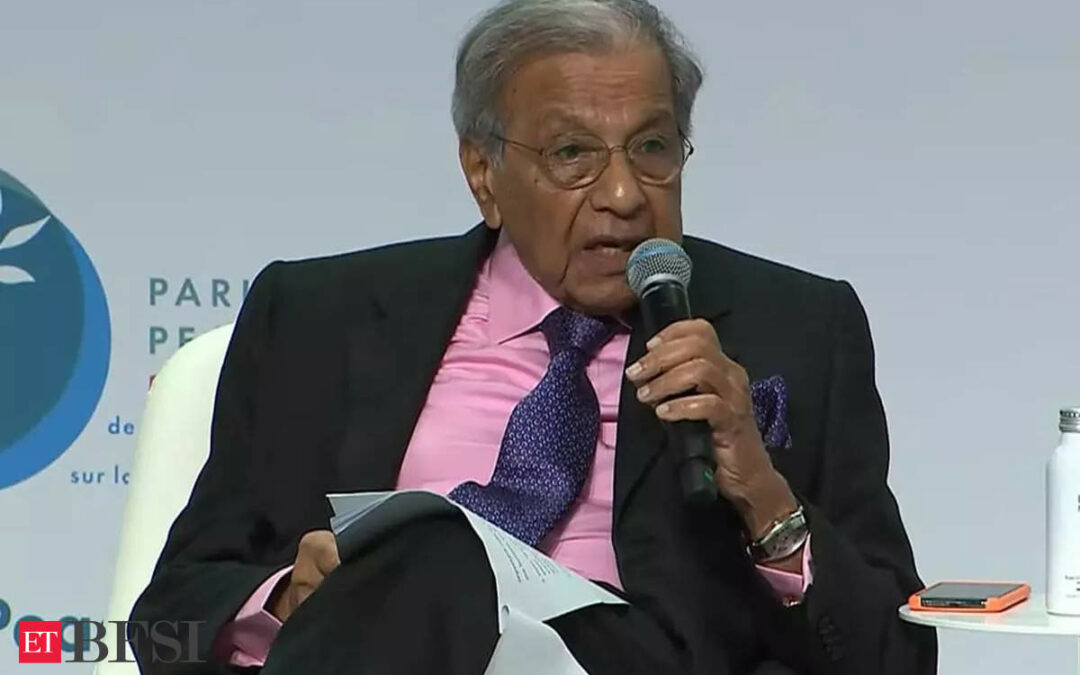Annual private capital mobilisation by multilateral development banks needs to quadruple to $240 billion by 2030, co-chair of the Independent Expert Group of MDB reforms set up under India’s G20 presidency N K Singh said, while cautioning against a piecemeal approach to reform of these institutions.
Speaking at the Paris Peace Forum at a session on “Achievements since the Summit for a New Global Financing Pact”, moderated by French President Emmanuel Macron, Singh asserted that MDBs required a tectonic makeover.
“The next 12 months are crucial to translate the current fervour into changes in process, procedures, and hopefully changes for better outcomes…. I worry about a piecemeal approach to reforms, and institutions acting in silos,” Singh said, adding that a change is needed in the management culture on many fronts.
The first volume, submitted to the G20 in July at Gandhinagar, had recommended enhancing their sustainable level of own-account non-concessional finance to $300 billion annually.
The second volume handed before the Marrakech G20 ministerial has suggested introducing new instruments – pooled portfolio guarantees and hybrid capital — and inclusion of new investors into the MDB capital stack, as part of steps to diversify the sources of capital. As per the report target is to triple MDB financing to $390 billion annually – $300 billion non-concessional and $90 billion concessional – by 2030 and by opening up opportunities to non-government investors such as sovereign wealth funds, foundations, impact investors and businesses contributing funds as part of their corporate social responsibility programs.
Singh said to some extent, while sequencing of reforms is “inescapable”, but the need for investments are urgent. “The sustainable infrastructure put in place in developing countries this decade will determine their carbon footprint for years thereafter,” he added.
He said the working group on International Financial Architecture has an important obligation to take these recommendations forward in a tangible way and they may also consider a mechanism for independent monitoring. “There is no escape from the present MDBs becoming Better, Bolder and Bigger. Better in partnering with clients and in working together as a system. Bolder in taking and managing country credit and policy risks. Bigger in tripling sustainable lending volumes,” he said.
Singh noted that some MDBs had begun to take forward the recommendations of the group.
“We have given quantitative targets, which are easily monitorable. These are time-bound recommendations,” he said.










